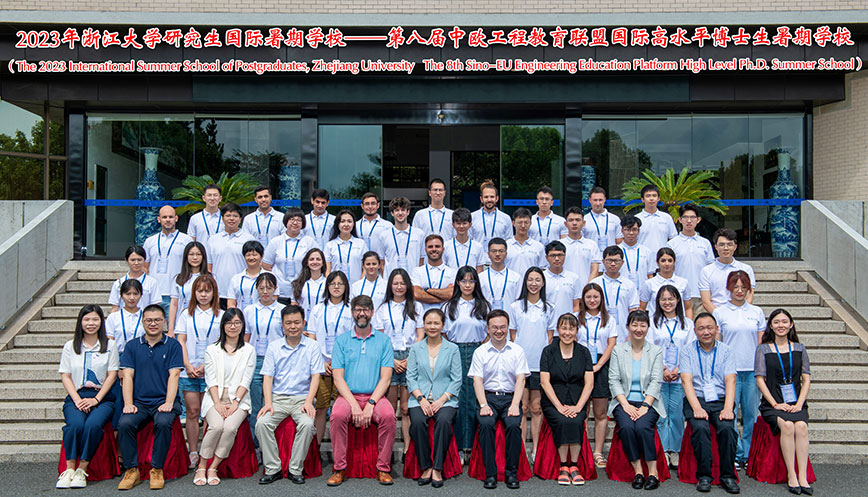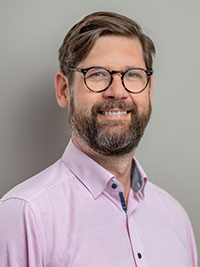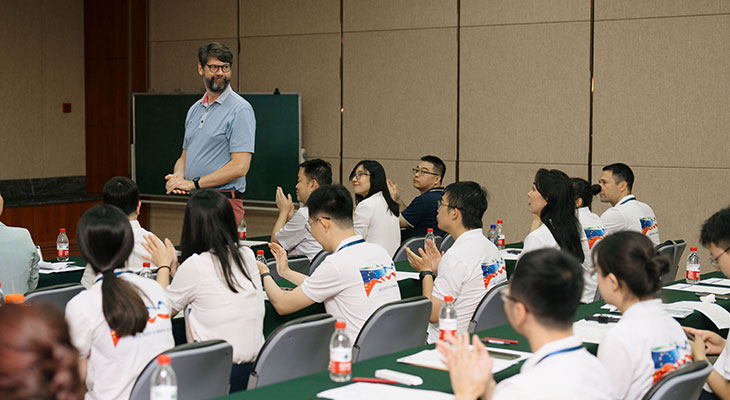SEEEP 2023 PhD summer school important part of KTH's work against accelerating climate change

The 2023 edition of the SEEEP PhD summer school was recently concluded where 20 doctoral students participated from Europe, of which 14 came from KTH, and 28 from China. The KTH Energy Platform funded the KTH doctoral students’ travel costs. Five different Chinese universities were represented, including KTH’s cooperative partners Zheijang University and Shanghai Jiao Tong University.
The SEEEP (the Sino-European Engineering Education Platform) PhD summer school was held in Hangzhou during the first week and in Shanghai during the second week. The doctoral students lived together in Chinese dormitories on each respective campus. During the summer school, the doctoral students were divided into seven mixed groups and addressed various themes related to the transition of the energy system towards a fossil-free future.
In the mornings, lectures were given by professors and representatives from the commercial sector. The doctoral students worked on their group projects during the afternoons and evenings. Two European professors accompanied the students: David Smeulders from Eindhoven University and Björn Laumert from KTH. The examination was based on the groups’ presentations and posters at the end of the summer school, and all groups passed successfully.
During the summer school, students examine different technical concepts and solutions that can be used to reduce the use of fossil fuels

“Within the summer school, we create cooperative and cultural exchanges between students from Europe and China with the aim of collaboratively addressing one of the most important challenges facing humanity: stopping the acceleration of climate change. The summer school can be seen as an important possibility for increasing understanding of the ongoing climate change and the important role that a transformation of the energy system plays in achieving climate goals,” says Björn Laumert , professor at the KTH School of Industrial Technology and Management (ITM), responsible for SEEEP at KTH. He is also a member of the KTH Energy Platform reference group.
According to Björn Laumert, the PhD summer school means for KTH’s part that approximately 50 doctoral students can receive education in this subject each year and that KTH demonstrates an important social responsibility both in Europe and in China. At the same time, it is important for KTH that the students also have the chance to learn about different cultures and have the opportunity for an exchange of personal experiences with each other.
“Students are encouraged to broaden their horizons outside of their specific research field and have the opportunity to learn about the energy system’s role in society and how current energy systems affect the global climate. This gives them context and a deeper understanding of why their specific research is needed to solve the climate crisis. At the same time, they also get to experience life as a student in China for two weeks. They have close contact with each other through their group work, which contributes to understanding each other’s background and culture,” he says.

Students also gain a comprehensive understanding of how the energy system works in Europe and China, which similarities and differences there are, and how emissions from the energy system affect the climate. They also delve deeper into electricity and heat production, distribution and consumption, and how new innovative technologies can drive a positive energy system transition. We also have several study visits to inspire and teach the students how technologies have been industrialised and applied in practice.
The PhD summer school is conducted in alternate years in China and Europe. Next year, the summer school will be held in Europe: one week in Stockholm, Sweden, and one week in Eindhoven, the Netherlands.

